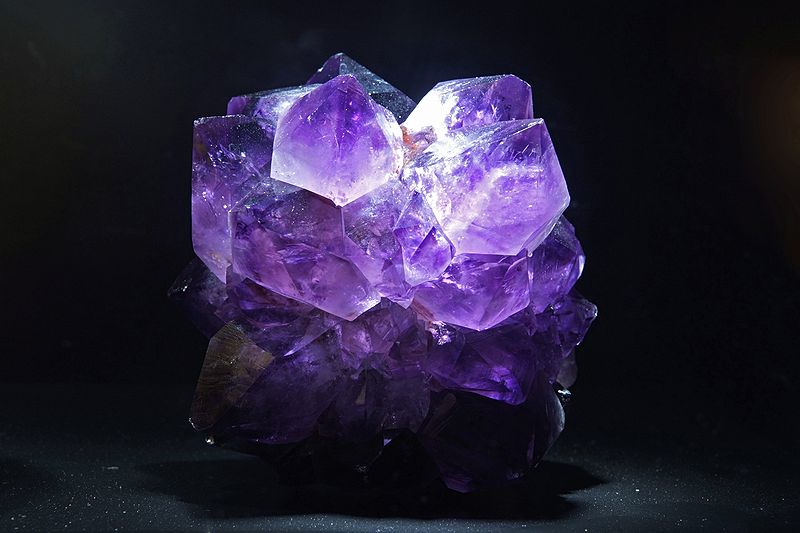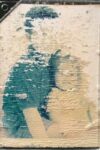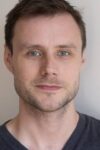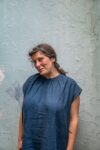
Photograph by Eva Kröcher (License)
I don’t know what my mother was looking for when, back in the late 1980s, she started asking a New Mexico psychic about her past and future lives. Whatever it was, she was part of a rush of people Albuquerque then saw, all of whom were seeking similar answers. This optimistic restlessness propelled the burgeoning New Age movement, defined above all by a certainty that we, as a human race, were about to catapult to a height of consciousness that would leave the Age of Aquarius gaping in wonder. My mother found the psychic’s name the only way one could: through word of mouth. Her services were never advertised.
I grew up believing that this connection from client to client — or tribe member to tribe member, as we described it — was a mark of the psychic’s authenticity, proof that she was not driven by mercenary motives, even if her readings weren’t cheap. She would take hand-written questions, close her eyes and allow herself to act as a channel to wise otherworldly beings, whose words she directly transcribed onto her typewriter. They replied in cryptic imagery and unusual turns of phrase that required skilled interpretation, always signing their letters “Friends in Source,” New Age jargon for aspects of the divinity that permeates the universe.
This is how my mother found her answers. But the real questions, the ones that would have probed at why she was looking for a psychic in the first place, were still missing.
These readings spurred her to travel the world, guided by the spiritual meanderings of José Argüelles, New Age luminary and author of such sprawling esoterica as The Mayan Factor and Earth Ascending. She went to Yucatán and the Peruvian Andes and Sedona, Arizona, where she said she was “imprinted” with sacred messages from the ancient Mayans — actually a race of benevolent extraterrestrials — that were leading us into the New Age.
All of this seemed normal. At fourteen, when I experienced my first bout of adolescent heartbreak, it was time for me to consult the psychic about why I was taking so long to get over my first crush. (The answer was epic, and involved our respective past lives.)
The psychic became as much of a presence in my own life as she had in those of the rest of my family. My aunts and uncles consulted her regularly at the onset of a new job opportunity or an impending marriage proposal. Meanwhile, my mother, with the readings’ confirmation that she was an extraordinary healer destined to impart rare wisdom to humanity, was collecting her insights into books and talks and workshops. She’d slept in one of Mexico’s Pyramids of the Sun on the night of the Harmonic Convergence, an inscrutable cosmic event that was supposed to awaken latent New Age belief in all of humanity. It was this moment, she said, that had transformed her.
But as she — and I — got older, the radiant realities projected by the readings weren’t matching up so well with the world around us. As she endured a spate of family illnesses and untimely deaths, she wrote to the psychic seeking messages from loved ones, as I too learned to do after my non-New Age father died. Nothing to me looked like the “new life” she constantly asserted was about to begin, but still she assured me, “It’s all happening on some level.”
I was used to that qualifier: on some level. I was born with cerebral palsy, and when I was nine, my mother took me to the faith healer Benny Hinn. She no longer considered herself Catholic, but as it is a New Age axiom that all religions have something to offer, so she believed that he could make me never need crutches again. When I asked her years later why it didn’t work, she explained that he indeed had healed me, on some level. “You were a lot more able to talk about your disability after that,” she said.
What you want is always unfolding on some level, this belief system says, and this is evident by how good this knowledge feels. The Universe, I was taught, resonates with every warm, positive, affirming emotion we have, and in sensing this resonance we can differentiate between the truths our souls know and the common messages we can feel are wrong in the depths of our beings.
Take my understanding of why certain things were difficult for me physically. It wasn’t because I had cerebral palsy and hadn’t accepted the reality of my disability fully enough to learn to adapt to the world. No, it was because I, like my mother, am part alien from the fourth dimension. She never said that we’re not human, per se, but she did say that we’re both more comfortable in what she called “the space between the space” between physical objects.
Because I knew what truth felt like, this made perfect sense to me. People who are sensitive in this way often struggle to feel comfortable in their bodies, because they’re so rich in spirit, in mind, in their capacity for interdimensional travel that renders the three-dimensional world difficult to navigate. I saw no arrogance in believing so unshakably that I was one of these special beings, nor in the declaration that New Age is superior to all other religions because it sees them all as equally true. I didn’t see that in actuality, when it borrows from other religions it conveniently omits all the doctrines that are challenging to follow, and retains only that which is immediately gratifying.
In college in Iowa, I had worn my New Age beliefs on my sleeve in defiance of mainstream religion and non-religion, and I was jubilant and lonely at the same time. It wasn’t until I moved to Austin, Texas, that I realized how much I had been missing in not belonging to a larger spiritual group. There, I was at last one among many. Every time the astrologers’ charts noted that Mercury was going into retrograde, the grocery store lines buzzed with speculation about its impact on communication and technology.
I was thrilled to meet so many people my own age who got it. I bestowed upon myself the title of Sunflower Warrior, strident defender of my mother’s faith. I frequented Austin’s premier New Age bookstore and every week visited a sliding scale acupuncturist (who always seemed surprised that I responded so well to her treatments). I regularly consulted a dream interpreter and Tarot reader, and attended weekly pagan church services that wholeheartedly reinforced my worldview. I had no idea that I was even part of a religion, until I did what I didn’t think was possible and fell in love outside of the faith.
He did what no one had done before: he asked me questions — something that, from a young age, I had trained myself to shut out of conversation. I’d never had to question my faith because so many of my friends were fellow devotees who couldn’t believe how lucky I’d been, raised as I was in the Universe’s truth instead of the oppressive dogmatic religions they’d had to free themselves from. Unlike anyone I’d ever met, my new boyfriend was well-versed in these ideas but had never taken them to heart.
I grew up understanding that you couldn’t possibly be a compassionate, aware, curious, intelligent, or creative human being and reject these beliefs once they were in front of you. Most people don’t “know this stuff,” as my mother always said, but once the truth is revealed to you, it restructures you on a subatomic level, doesn’t it?
I didn’t want this arrogance anymore. I wanted what I had always loved, but had switched off any time it conflicted with my beliefs: questions and debate.
My friends were not happy about this. They angrily insisted that this late-20s questioning came naturally from my Saturn Return (yes, like the No Doubt album). Of course, in New Age there is no Hell or judgment of any sort, so I was spared any up-front condemnation. Instead, I got more passive-aggressive responses: one friend, for instance, said we could never be fully open with each other now that she couldn’t share insights from psychics and aura healings with me. “You can share anything you want,” I told her. “I just might not believe it.” She said you can’t share these things with people who don’t believe them, that I of all people should understand that.
Another friend lamented that, “to the old Sarah, anything went,” when I couldn’t understand why he needed to go to Austin for ten days, to live on the streets without any money or identification. It was clear, he told me, that I had become a “scientific rationalist” (a grave insult in New Age circles), comparing me to famed atheist Richard Dawkins.
In reality, I haven’t lost all faith. If anything, I have come to better understand God as much bigger than all of us. But I certainly don’t think anymore that there’s a point to believing in God if you ascribe that same divine importance to yourself.
My mother now lives in South Carolina, where she’s taken it upon herself to care for her brother who suffered a stroke last winter, to take the load off his wife. She no longer works at Starbucks, and she’s not sure what she’ll do once his condition has improved. She still tells me that her new life is about to begin — she just needs a good web site to advertise the work she’s been doing. All of this is about to get so, so big.
She’s been saying this for fifteen years, but that doesn’t discourage her: it feels right, and that’s enough to sustain her.
This post may contain affiliate links.







